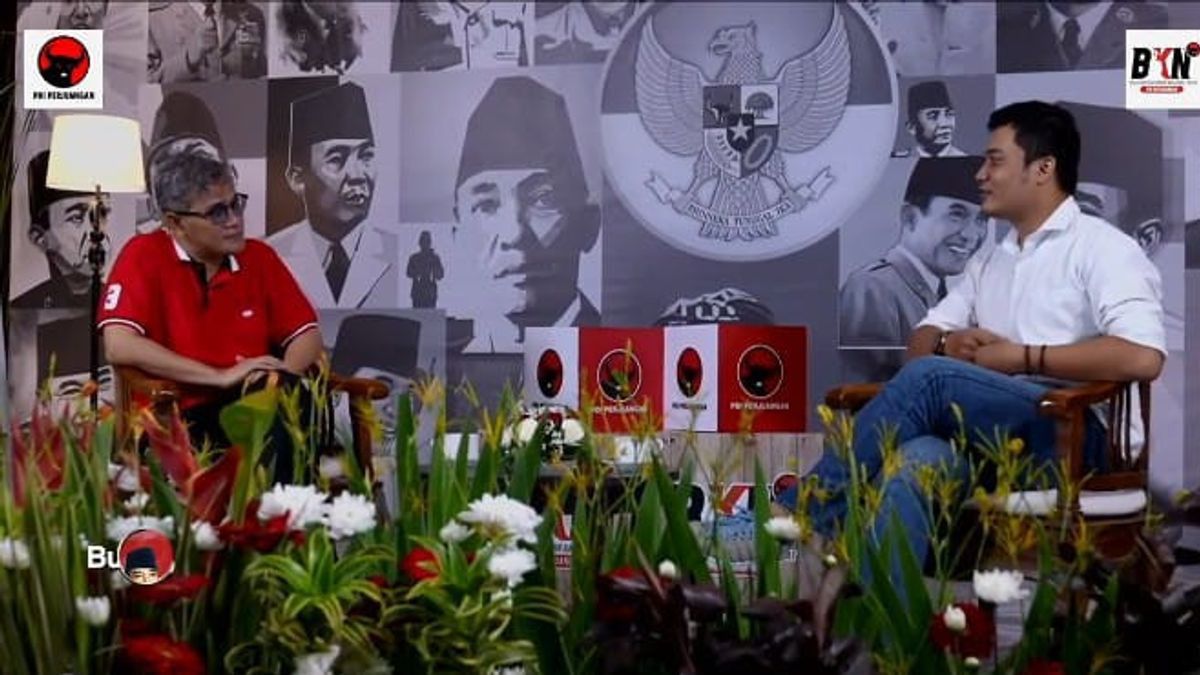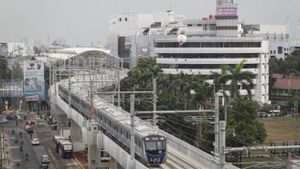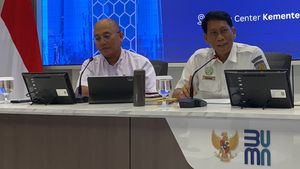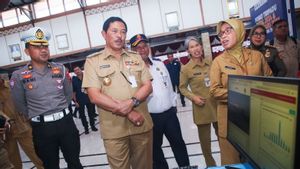JAKARTA - Recently, the name of the Indonesian Democratic Party of Struggle (PDIP) politician Budiman Sudjatmiko has become a topic of discussion in the public sphere. The reason is, he denied that the government of President Joko Widodo (Jokowi) tends to be authoritarian. Even so, he did not deny that the Jokowi regime was repressive. And according to him, apparatus repression is necessary in a democratic country. This argument has drawn criticism until it is judged to be a mere political defense.
Budiman made this argument through his twitter account. He said that all democratic regimes should be able to be repressive to enforce the rules. Otherwise, the country could be in chaos.
"If it is not repressive, it can rise and fall and be chaotic. The existence of intelligent control/opposition is to prevent it from becoming authoritarian. Jokowi's government is repressive? Yes. Authoritarian? No," wrote Budiman.
Budiman, citing the argument of the philosopher Louis Althusser, said that the state must have two types of apparatus. The first is the ideological apparatus and the second is the repressive apparatus.
He gave an example of the ideological apparatus of schools and universities. While the repressive apparatus is the police, army and prisons.
"The democratic state that we aspire to must be repressive. This is to enforce the rules while still being controlled by a smart opposition," said Budiman.
Distinguish between authoritarian and repressive. All democratic regimes must be able to be repressive to enforce the rules. If you are not repressive, you can get ups and downs & mess up. The existence of intelligent control/opposition is to prevent it from becoming authoritarian. Is the government of Mr. @jokowi repressive? Yes. Authoritarian? No https://t.co/ITtEPNhIB2
— Budiman Sudjatmiko (IG: masbud_sudjatmiko) (@budimandjatmiko) September 1, 2021
Budiman's argument was then flooded with criticism from many parties such as activists and academics. Executive Director of Indonesia Political Review Ujang Komarudin, for example, said that he considered the argument fabricated and tended to be justified.
"To justify the repression of a regime. It's just a defense. Twisting logic," said Ujang to VOI.
According to Ujang, a leader who is loved and cherished by the people will never take repressive actions. "Just to justify the repression of a regime," said Ujang.
Indeed, the theory quoted by Budiman is true, but Ujang thinks its use is wrong. "The use of it is wrong. TNI and Polri are repressive institutions. But they should not be used to frighten the people."
Budiman's argument which is considered only a defense of a repressive regime makes sense. Because, said Ujang, currently the repression of the apparatus is quite severe.
"It's pretty bad. The proof is that people are afraid to criticize," said Ujang. So how ideally the state enforces the law?

To answer this question, VOI contacted The Institute for Criminal Justice Reform (ICJR) researcher Iftitahsari. Regarding repression, he explained that the terminology needs to be straightened out first.
Iftitahsari explained, basically all actions by law enforcement officers are indeed repressive. And according to him, repressive terminology is the actions of law enforcement officials which in certain contexts are excessive.
"We usually use repressive terms to describe the actions of law enforcement officers which in certain contexts are excessive. So that repressive actions are not necessary," said Iftitahsari.
In law, according to Iftitahsari, there is something called measured action. "So it's like a repressive measure that has levels like that."
Meanwhile, when it comes to whether or not repressive apparatus is necessary, Iftitahsari emphasized that it is not something that should be supported. Especially in a democracy that should uphold human rights and civil liberties.
"Repressive actions, in essence, are not something that should be encouraged under any circumstances. Especially in a democracy which should uphold human rights and civil liberties, it is contrary to the definition of repressive action itself," he concluded.
*Read other information about POLITICS or other interesting articles from Ramdan Febrian Arifin.
Other BERNASThe English, Chinese, Japanese, Arabic, and French versions are automatically generated by the AI. So there may still be inaccuracies in translating, please always see Indonesian as our main language. (system supported by DigitalSiber.id)










